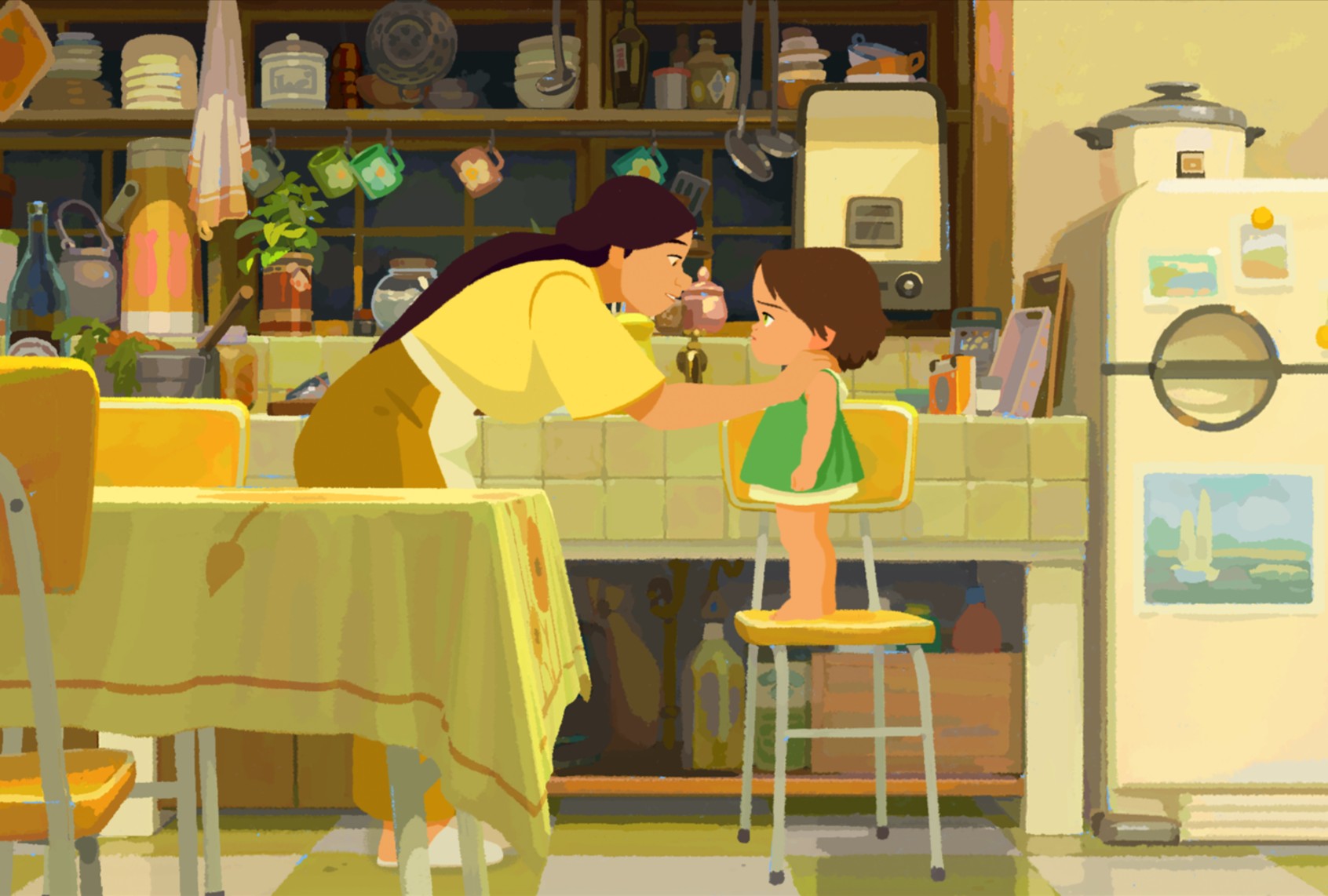It seems almost strange, given that we were all young once upon a time, but figuring out how to communicate with kids can be challenging. No one really wants to admit it, but it’s true. Kids are smart. They know when they’re being patronized, even if they don’t always say it. But they’re also malleable; there’s no telling what might affect them, or what a child might carry with them throughout their life. That’s why, despite all of our biological programming and lived experience, a random question or interaction with a child will sometimes knock you on your back and leave you stammering. Kids say the darndest things, indeed.
When Amélie (Loïse Charpentier) — the two-and-a-half-year-old Belgian toddler living with her parents in post-war Japan during the ’60s in the sublime new film, “Little Amélie or the Character of Rain” — asks her nanny, Nishio-san (Victoria Grosbois), “Why do we die?” Nishio-san is taken aback. Her occupation has prepared her for questions like this, but receiving them in such a blunt fashion, with the ease and directness of being asked for another handful of Cheerios at snack time, takes her by surprise. What is the best way to respond? With frank honesty? Or a healthy sugar-coating to cushion the inevitable blow of a child’s first interaction with her mortality? Nishio-san opts for a combination of the two, telling Amélie about what happens when people live a long, long life. But it’s Amélie’s follow-up, “What about when young people die?” that really stumps her. “Are you sure you want to hear about this?” Nishio-san asks.
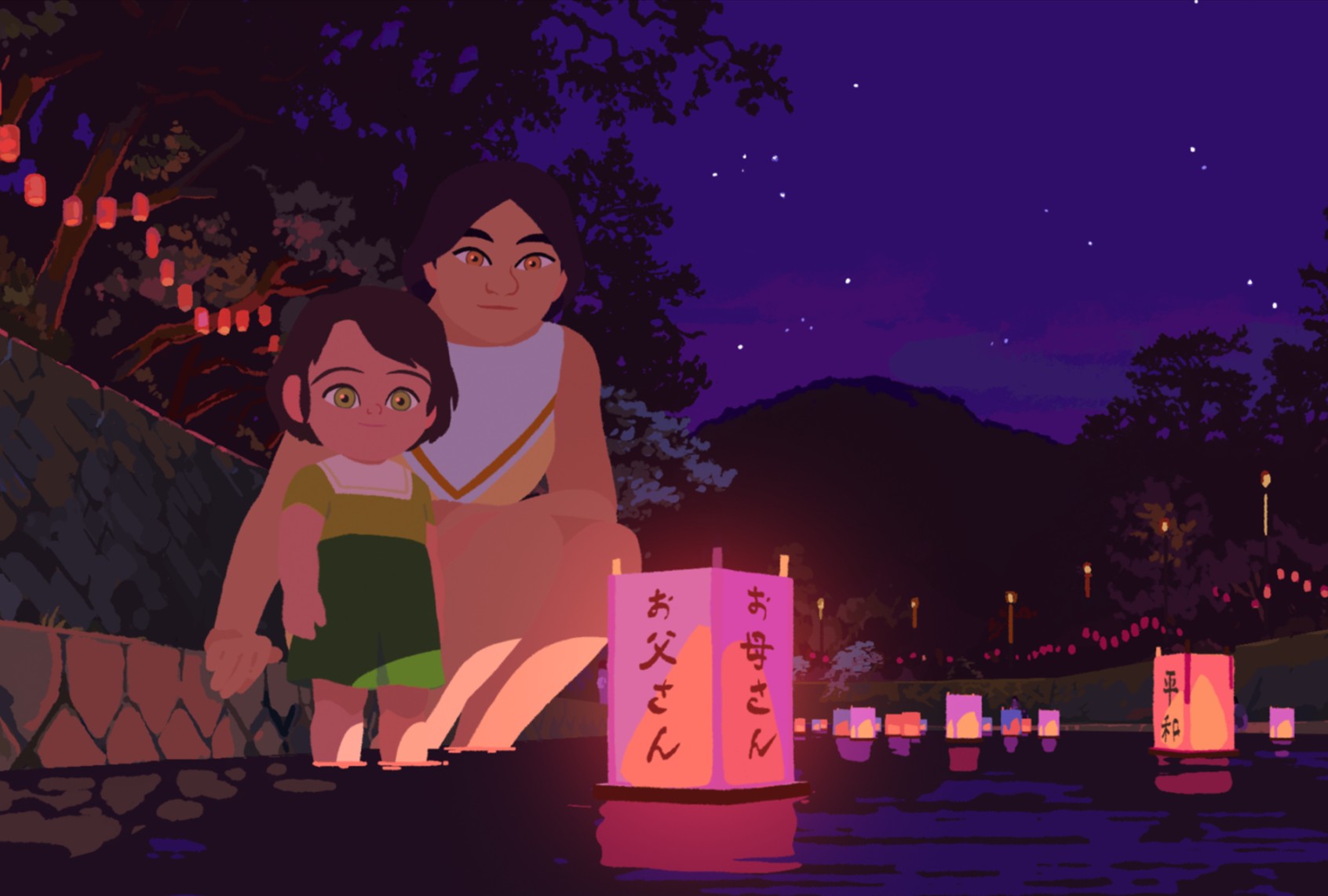
(GKIDS) “Little Amélie or the Character of Rain”
It’s not only that these films are such stellar portrayals of childhood fears mixed with youthful curiosity, but that they are so far beyond even the most well-made material available for kids to watch in theaters or on streaming.
In these situations, there is, of course, no way to know whether a child’s response might actually mean that they’re ready to face life’s darkness. But whether we like it or not, the Earth keeps spinning and people come and go. Beyond death, there is so much suffering and evil that is even more indescribable, somehow less cut-and-dry than the simple act of dying. At a recent Q&A for his slightly less dreamy (but no less French) film, “Arco,” director Ugo Bienvenu spoke about how he wanted to create a film for kids that didn’t spoon-feed them. Bienvenu’s movie, which tackles the realities of climate disaster and technological domination through a kaleidoscopic lens, believes that children deserve to know the truth about the world they’re growing up in. Through mutual radical honesty — not to mention jaw-droppingly rendered animated environments — “Arco” and “Little Amélie” are paving the way for a generation of children who must, unfortunately, come to terms with life’s sorrows far earlier than they should have to. While they’re holding their viewers’ hands, these films are also speaking directly to children, equipping them with the necessary tools to make sense of a world that too often makes little sense as it is.
With three nieces between the ages of 2 and 6, I think of these matters often. The oldest has only just started kindergarten, but her mind is already filled with thoughts, ideas and questions about how the world around her works. In just a year’s time, she’s gone from being terrified of freak weather events like tornadoes to brushing them off entirely, reducing the power they once had over her mind by giving them a cuter nickname: ‘nados. She hasn’t, however, always been able to overcome her COVID-era baby shyness, her stage fright when anyone but her family is watching, or the fact that every present under the Christmas tree isn’t for her.
This is mostly normal kid stuff, no doubt. But reading between the lines, I can sometimes glimpse an anxiety that might resurface in the coming years. Tornadoes might not be so frequent, but warming temperatures and rising sea levels sure are. She’s also growing up in a time when social media and algorithms are designed to magnify shyness by forcing users to compare themselves to others at their most Instagram-ified state. Maybe thinking too hard about these correlations is how parents make themselves crazy, I suppose I wouldn’t know. My nieces have saved their most existential questions for my sister and brother-in-law, after all. But if I find myself losing sleep over matters of their future, and I’m merely enjoying the privileges and lighter anxieties of being the fun uncle, I can only imagine how difficult it is to prepare a child for this world firsthand.
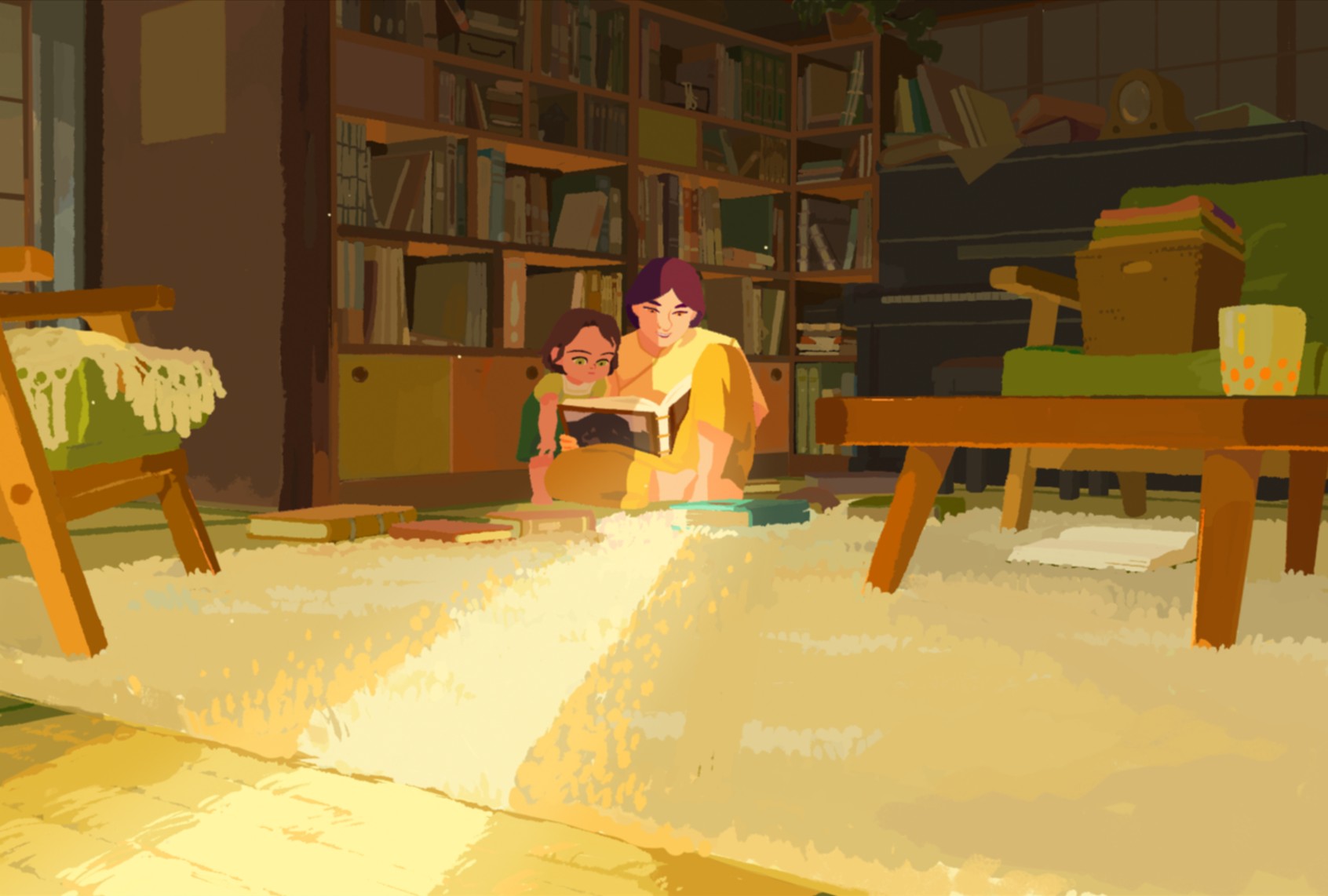
(GKIDS) “Little Amélie or the Character of Rain”
Any parent looking for a bit of a roadmap will be elated to find that this monumental job is made the slightest bit easier by “Little Amélie” and “Arco.” And it’s not only that these films are such stellar portrayals of childhood fears mixed with youthful curiosity, but that they are so far beyond even the most well-made material available for kids to watch in theaters or on streaming. “Arco” will entrance kids and pre-teen viewers with its just-crude-enough animation style, providing the film with a taste of scrappy ’70s psychedelia and distinctly French character illustration. So many modern films and television shows made for children lure them into their worlds with smooth, fluid animation, using the stylistic softness to covertly impart some important lessons. “Arco,” on the other hand, understands that, because kids are so curious about the way life works, they are just as curious and inspired by animation styles that look nothing like they’ve ever seen before. “Arco” uses Bienvenu and his team’s carefully hand-drawn lines to stun the viewer, pairing them with the rainbow spectacle of the title character’s time-traveling super suit.
Start your day with essential news from Salon.
Sign up for our free morning newsletter, Crash Course.
When Arco (Oscar Tresanini), a boy from the far future who travels on rainbows, accidentally crash-lands in a year not too far from our own time, his rescuer, Iris (Margot Ringard Oldra), must figure out how to get him back to his family and his future. Naturally, this makes Iris inquisitive. She’s spent her whole life being cared for by android robots while her parents are away, and stockpiling perishable resources and doomsday goods for when wildfires become too widespread to ignore. From here, Bienvenu gracefully leads the viewer through mass uncertainty that looks startlingly close to our own, finding hope in the developing connection between Arco and Iris, and plenty of space to dream of a future where human bonds are strong enough to undo the pain and heartbreak of a world changing faster than we can keep up.
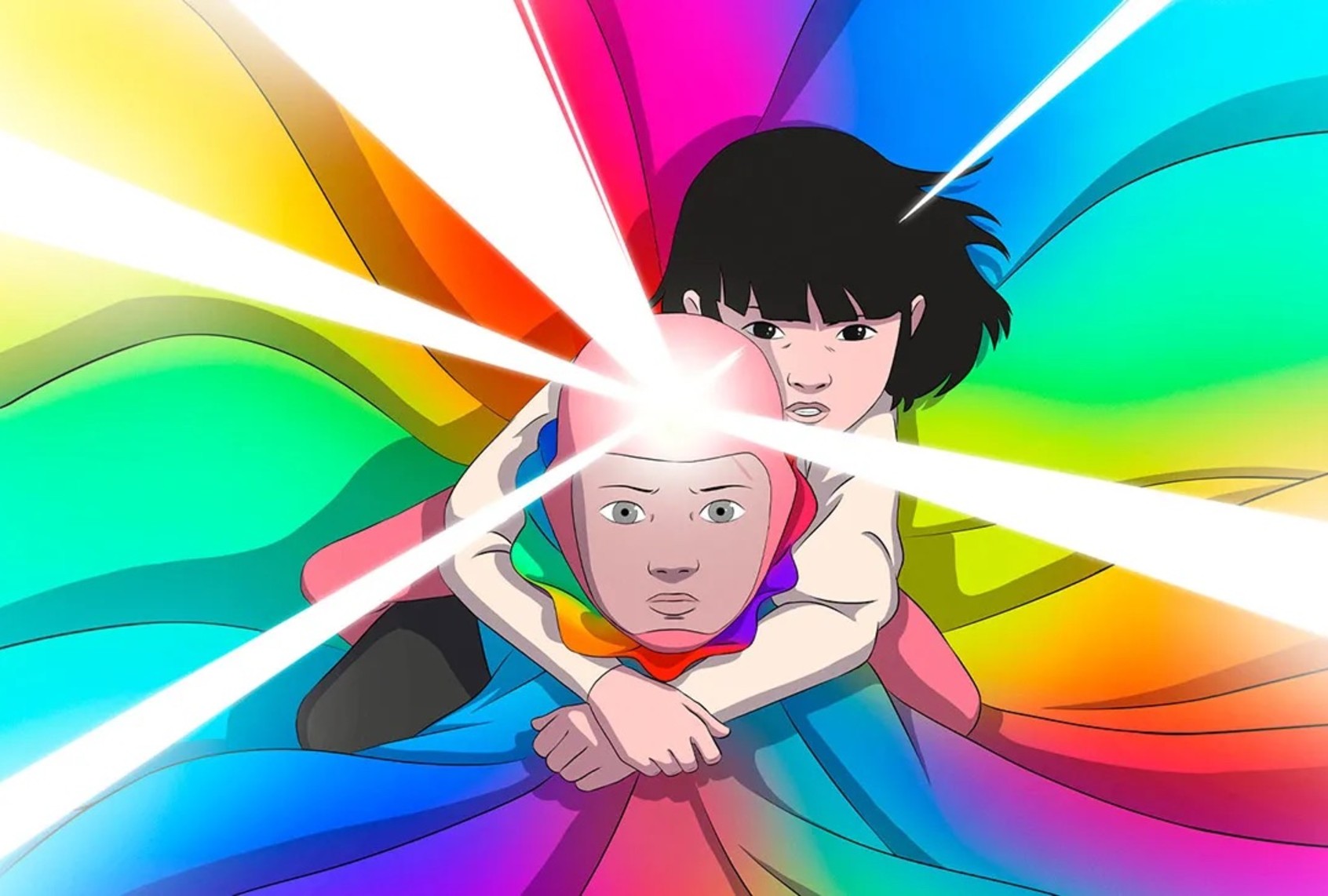
(Neon) “Arco”
When you’re a kid, everything feels as big as the whole universe. Every win is a triumph, and every loss cuts like a knife. With her nanny’s teachings, Amélie learns of the beauty in the middle, where grief can pass through joy and a mood can switch toward happiness in an instant.
Where “Arco” mesmerizes with its less-conventional animation style, “Little Amélie” employs swaths of eye-popping color, broad shapes and thoughtfully rendered two-dimensional art style and camera movements to bewitch slightly younger viewers. (Though it should be noted, this 31-year-old spent the film’s 75 minutes with his jaw on the floor and tears pouring from his eyes.) Where “Arco” uses its blunt writing to speak honestly to audiences, “Little Amélie” begins almost entirely abstract, with Amélie narrating a version of the Japanese belief that, when children are young, they are their closest to God — hyper-observant beings that see everything, and everything passes through.
“Little Amélie” talks to children by settling into the mind of its titular toddler as she grows from her infancy. At that time, Amélie is frustrated by the fact that she can’t talk in the way that her family can, that she can’t move like them, or enjoy life like they do. She is merely a spectator, thinking kernels of thoughts that will be dashed into the mind’s chasm as her brain grows and develops. But for now, she’s angry. Why does she exist in this world that, to her knowledge, isn’t made for her? And more importantly, why can’t she experience the happiness she sees all around her?
That is, until she gets a taste of Belgian white chocolate, brought to Japan during a visit from her paternal grandmother. The rush of sugar, cream and cocoa sends Amélie’s synapses firing. Suddenly, bliss is in reach, and her grandmother is her favorite person in the world, the one being who could lift the veil she couldn’t see past.
Enter Nishio-san, tasked with taking care of Amélie while her parents are busy working. Like Iris in “Arco,” some of Amélie’s fondest memories come from the people she meets who aren’t her parents, the ones who have the privilege of being candid without being consumed by the innate worry that they’ll mess their child up by doing so. Nishio-san shows Amélie the world — or at least as much of it as a child should be witness to. Then, with no warning, Amélie’s grandmother dies, and directors Maïlys Vallade and Liane-Cho Han Jin Kuang introduce a layer of transience that subtly begins to play with Amélie’s idea that everything is predetermined.
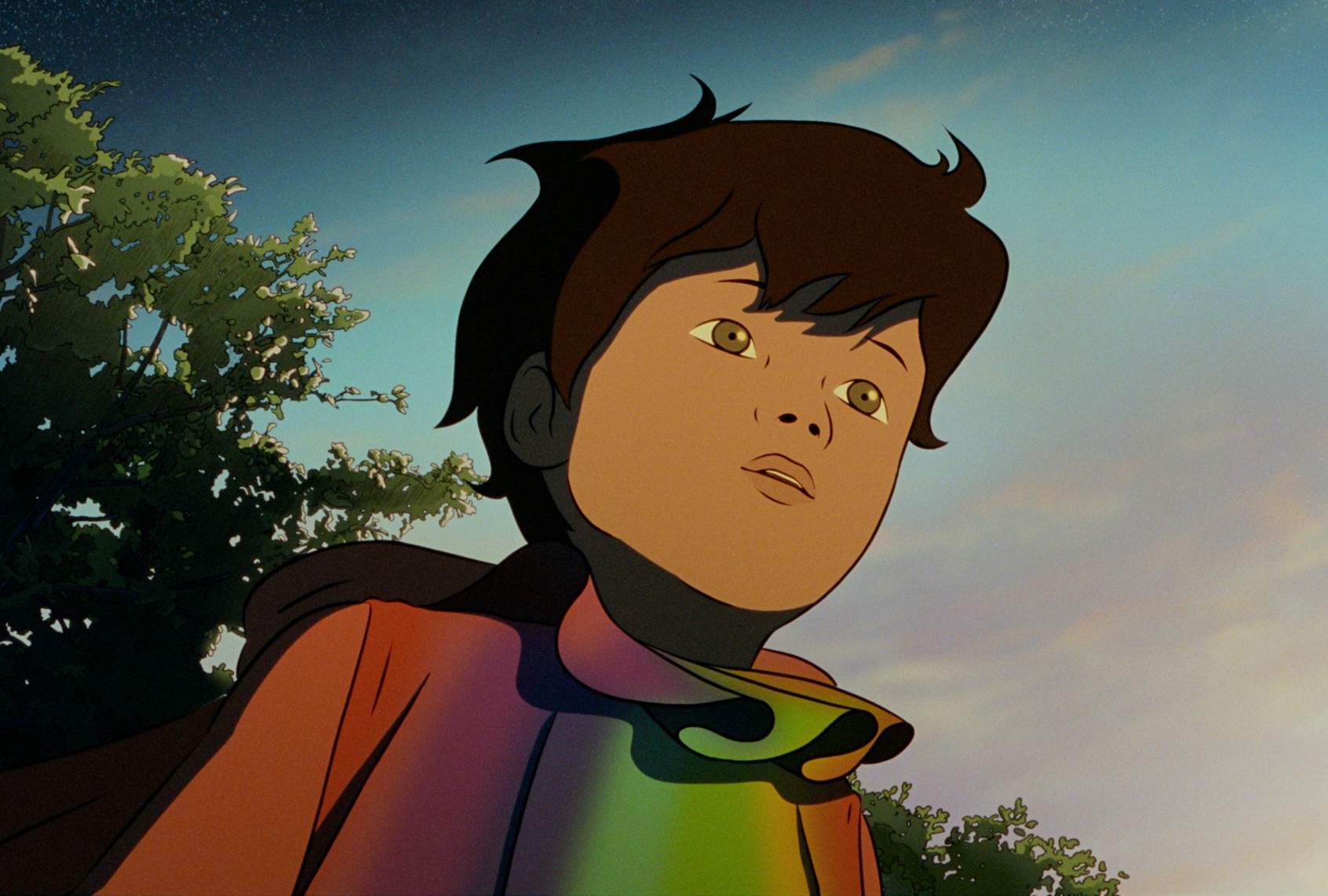
(Neon) “Arco”
Anything can happen now, and anything does. An early trauma opens emotional floodgates, even when you’re too young to understand it. Children wonder where people and pets have gone, and ask why they can’t come back. Often, the memory of time spent together lasts longer than the knowledge that a loved one is gone forever, and the question of where they are cycles back.
With Nishio-san’s help, Amélie learns the power of memory. Her nanny teaches her that we can see people all of the time in the things that they loved, even when they’re no longer here. Eventually, Amélie will have to practice that same thinking for her beloved caretaker. But because of Nishio-san’s candor and affection, life is easier to process. When you’re a kid, everything feels as big as the whole universe. Every win is a triumph, and every loss cuts like a knife. With her nanny’s teachings, Amélie learns of the beauty in the middle, where grief can pass through joy and a mood can switch toward happiness in an instant.
In both “Arco” and “Little Amélie,” when child characters are treated with the same respect and trust as their adult counterparts, they grow up faster. Not in the sense that they mature too fast, but that they have the capacity for love and enjoying life in the moment at an even earlier age. Experiences are special because the knowledge that they’re fleeting is ever-present. And in the end, this knowledge drives the kids to pursue joy, even at the risk of pain. And while being a parent, caregiver, uncle, aunt or grandparent is especially difficult when so many of us aren’t sure what to make of the world around us, the fear of screwing a child up by being honest with them about life can’t keep us from letting them live it. That part will happen whether we like it or not. The least we can do is be honest about what’s to come, holding their hand until they’re ready to let go.
Read more
about innovative animation
